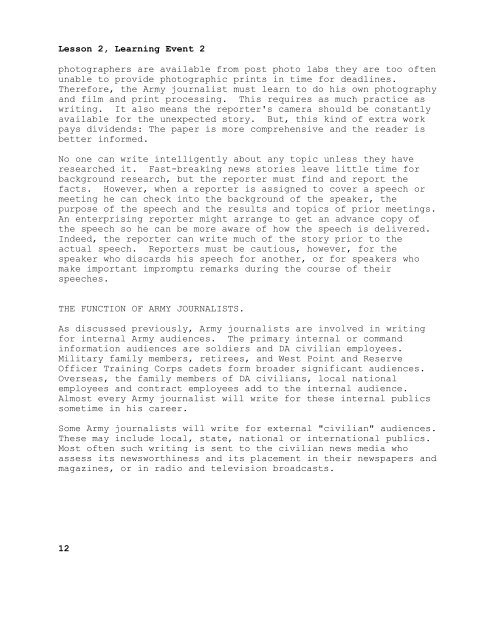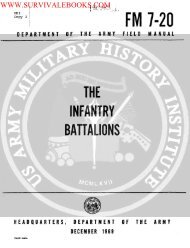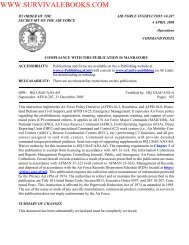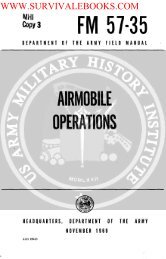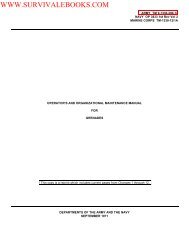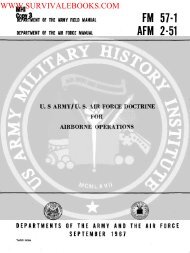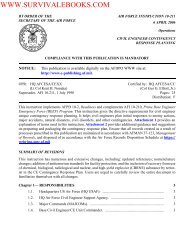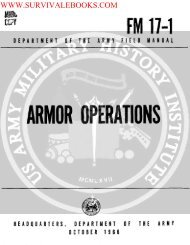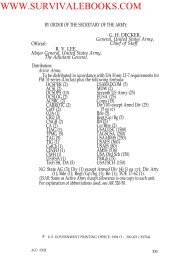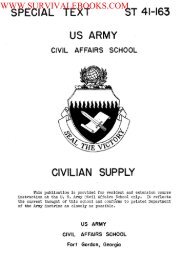US Army Journalist - Course - Survival Books
US Army Journalist - Course - Survival Books
US Army Journalist - Course - Survival Books
- No tags were found...
You also want an ePaper? Increase the reach of your titles
YUMPU automatically turns print PDFs into web optimized ePapers that Google loves.
Lesson 2, Learning Event 2photographers are available from post photo labs they are too oftenunable to provide photographic prints in time for deadlines.Therefore, the <strong>Army</strong> journalist must learn to do his own photographyand film and print processing. This requires as much practice aswriting. It also means the reporter's camera should be constantlyavailable for the unexpected story. But, this kind of extra workpays dividends: The paper is more comprehensive and the reader isbetter informed.No one can write intelligently about any topic unless they haveresearched it. Fast-breaking news stories leave little time forbackground research, but the reporter must find and report thefacts. However, when a reporter is assigned to cover a speech ormeeting he can check into the background of the speaker, thepurpose of the speech and the results and topics of prior meetings.An enterprising reporter might arrange to get an advance copy ofthe speech so he can be more aware of how the speech is delivered.Indeed, the reporter can write much of the story prior to theactual speech. Reporters must be cautious, however, for thespeaker who discards his speech for another, or for speakers whomake important impromptu remarks during the course of theirspeeches.THE FUNCTION OF ARMY JOURNALISTS.As discussed previously, <strong>Army</strong> journalists are involved in writingfor internal <strong>Army</strong> audiences. The primary internal or commandinformation audiences are soldiers and DA civilian employees.Military family members, retirees, and West Point and ReserveOfficer Training Corps cadets form broader significant audiences.Overseas, the family members of DA civilians, local nationalemployees and contract employees add to the internal audience.Almost every <strong>Army</strong> journalist will write for these internal publicssometime in his career.Some <strong>Army</strong> journalists will write for external "civilian" audiences.These may include local, state, national or international publics.Most often such writing is sent to the civilian news media whoassess its newsworthiness and its placement in their newspapers andmagazines, or in radio and television broadcasts.12


